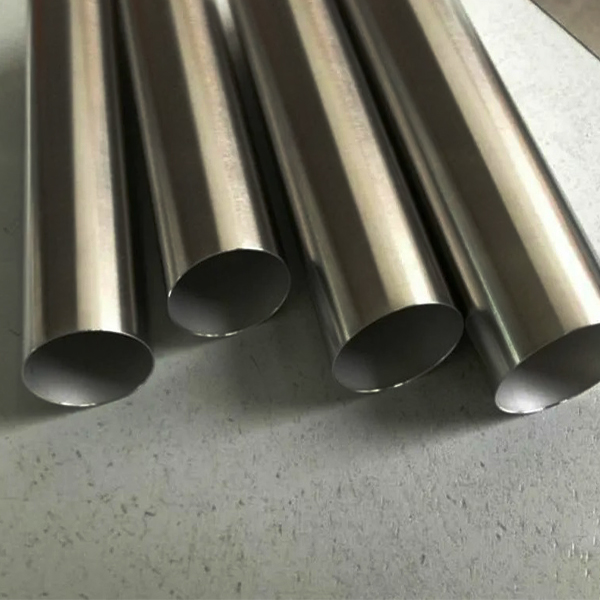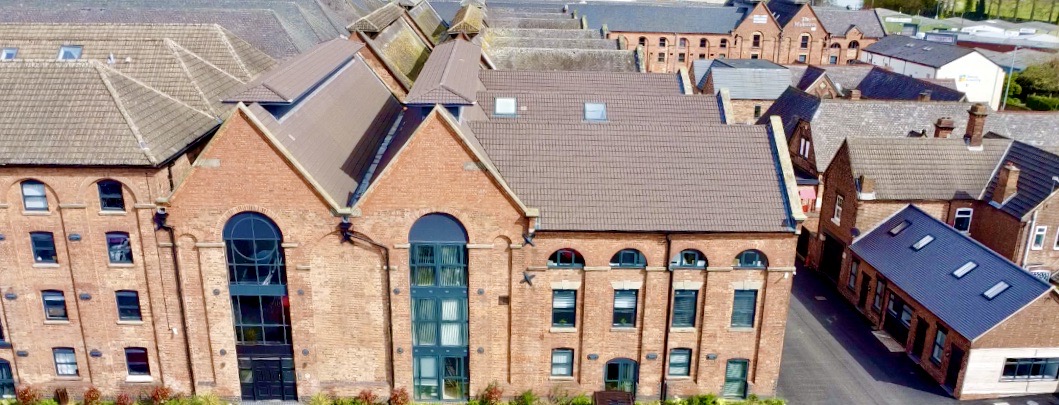Industrial operations often face the challenge of corrosion caused by aggressive chemicals and harsh environments. To overcome these challenges, engineers turn to materials that can withstand both mechanical stress and chemical attack. One such alloy is Alloy 28 (UNS N08028), known for its exceptional resistance to acids and oxidizing environments.
As a leading Alloy 28 Tubes Supplier, we deliver high-quality seamless and welded tubes that meet the toughest industry standards. Our tubes are designed to perform efficiently in applications involving sulfuric acid, phosphoric acid, seawater, and high-temperature systems.
Understanding Alloy 28
Alloy 28, often referred to as Sanicro 28, is a nickel-iron-chromium alloy enhanced with molybdenum and copper. This composition gives it a balance of resistance to both oxidizing and reducing agents. It’s especially effective in environments that would quickly corrode standard stainless steels.
Key Composition:
-
Nickel (Ni): 30–32%
-
Chromium (Cr): 26–28%
-
Molybdenum (Mo): 3–4%
-
Copper (Cu): 1–2%
-
Iron (Fe): Balance
-
Carbon (C): ≤ 0.03%
This precise chemistry makes Alloy 28 suitable for chemical process systems, oil & gas piping, desalination plants, and power generation units.
Features and Benefits of Alloy 28 Tubes
Alloy 28 Tubes combine corrosion resistance, mechanical stability, and durability, which makes them a preferred choice in multiple industries.
1. Exceptional Corrosion Resistance
Alloy 28 performs extremely well in both oxidizing and reducing environments. It is resistant to sulfuric acid, nitric acid, phosphoric acid, and hydrochloric acid, ensuring long service life in chemical plants.
2. Resistance to Pitting and Crevice Corrosion
The presence of molybdenum and chromium enhances the alloy’s ability to resist localized corrosion in chloride-bearing solutions, including seawater.
3. Superior Mechanical Strength
Alloy 28 Tubes retain their strength under high temperature and pressure, making them suitable for boilers, condensers, and heat exchangers.
4. Stress Corrosion Cracking Resistance
In chloride-rich environments, stress corrosion cracking (SCC) is a common issue. Alloy 28 resists SCC due to its high nickel content, ensuring safe and reliable performance.
5. Ease of Fabrication
Alloy 28 Tubes can be welded, machined, and formed easily using standard shop tools, enabling flexibility in custom designs and fabrication.
Types of Alloy 28 Tubes We Supply
As a reputed Alloy 28 Tubes Supplier, we provide a complete range of tubing products suitable for different pressure and environmental requirements.
1. Alloy 28 Seamless Tubes
Manufactured through an extrusion process, seamless tubes offer superior mechanical integrity with no welded joints. They are ideal for high-pressure and critical applications such as refineries, heat exchangers, and chemical reactors.
2. Alloy 28 Welded Tubes
Produced by welding Alloy 28 strips or plates, these tubes are cost-effective and ideal for applications where high pressure is not a primary concern but corrosion resistance is vital.
3. Custom Alloy 28 Tubing
We offer customized tube dimensions, wall thicknesses, and surface finishes as per client specifications to fit unique industrial needs.
Available Forms:
-
Round Tubes
-
Square Tubes
-
Rectangular Tubes
-
Hydraulic Tubes
Finishes: Polished, Pickled, Bright Annealed, and Custom Finishes
Applications of Alloy 28 Tubes
Alloy 28 Tubes are used across industries that demand durable and corrosion-resistant materials. Some major applications include:
1. Chemical Processing Industry
Alloy 28 Tubes are widely used in acid handling equipment, heat exchangers, evaporators, and piping systems that process sulfuric, phosphoric, and nitric acids.
2. Oil and Gas Sector
These tubes are preferred for downhole tubulars, flowlines, and umbilical tubes, thanks to their ability to resist sour gas environments containing H₂S and chlorides.
3. Marine & Desalination Plants
In seawater and brackish water environments, Alloy 28 Tubes resist pitting, crevice corrosion, and biofouling, ensuring long-term service in desalination units and marine applications.
4. Power Generation
Power plants use Alloy 28 Tubes in boilers, condensers, and feedwater heaters, where high temperature and pressure create highly corrosive conditions.
5. Pharmaceutical and Food Processing
The tubes’ hygienic properties and corrosion resistance make them ideal for sterile processing and chemical reactors in the pharmaceutical sector.
Technical Specifications of Alloy 28 Tubes
| Property | Description |
|---|---|
| Standard | ASTM A213 / ASTM A269 / ASTM A312 |
| Grade | Alloy 28 / UNS N08028 / W.Nr. 1.4563 |
| Type | Seamless, Welded, ERW, Fabricated |
| Form | Round, Square, Rectangular, Hydraulic |
| Size Range | 6 mm OD – 219 mm OD |
| Wall Thickness | 0.5 mm – 20 mm |
| Length | 6 m – 12 m (or custom) |
| Finish | Bright Annealed, Polished, Pickled, Custom |
Quality and Testing Standards
As a trusted Alloy 28 Tube Manufacturer and Supplier, we ensure every tube meets strict quality control procedures and international standards.
Quality Tests Include:
-
Hydrostatic Pressure Test
-
Eddy Current Test
-
Flattening and Flaring Test
-
Intergranular Corrosion Test (IGC)
-
Hardness and Tensile Test
-
PMI (Positive Material Identification)
-
Visual and Dimensional Inspection
All test results and certifications such as EN 10204 3.1/3.2 are provided to assure clients of material integrity.
Manufacturing Process
Our Alloy 28 Tubes are produced using advanced manufacturing technology to achieve high dimensional accuracy and superior surface finish.
Step-by-Step Process:
-
Raw Material Selection: Premium-quality billets and sheets of Alloy 28.
-
Forming: Extrusion or welding depending on tube type.
-
Heat Treatment: Solution annealing enhances corrosion resistance and ductility.
-
Pickling and Cleaning: Removes impurities and scales.
-
Cold Drawing (for seamless tubes): Ensures precise thickness and smooth surface.
-
Final Testing and Inspection: Ensures compliance with ASTM and ASME standards.
Why Choose Us as Your Alloy 28 Tubes Supplier
Selecting a reliable supplier is crucial for consistent quality and on-time delivery. Here’s why industries trust us:
1. Quality Assurance
We adhere to international standards like ASTM, ASME, DIN, and EN, ensuring the highest quality materials.
2. Customization Options
From custom lengths to special surface finishes, we provide tubing tailored to specific industrial needs.
3. Global Supply Network
We supply Alloy 28 Tubes to clients in over 25 countries, offering reliable export and logistics services.
4. Competitive Pricing
Our efficient production and bulk inventory help us offer cost-effective pricing without compromising quality.
5. Experienced Technical Team
Our engineers assist clients in material selection, technical specifications, and project planning, ensuring you get the right product for your application.
Export Destinations
We supply Alloy 28 Tubes to clients in:
-
United States
-
United Kingdom
-
Germany
-
Saudi Arabia
-
UAE
-
Singapore
-
Malaysia
-
Australia
-
South Africa
Our products are well-recognized for their consistent performance and durability in global markets.
Advantages of Using Alloy 28 Tubes
-
Superior resistance to acidic and chloride environments
-
High tensile and yield strength
-
Reliable performance under extreme pressure and temperature
-
Long service life with minimal maintenance
-
Excellent fabrication and welding properties
-
Cost-effective compared to high-nickel alloys like Inconel
Common Standards for Alloy 28 Tubing
-
ASTM A213 / A269 / A312 – Seamless and Welded Tubes
-
ASME SB-423 – Alloy 28 Tube Specification
-
EN 10216-5 – Stainless Steel and Nickel Alloy Tubes
-
DIN 17458 – Seamless Circular Tubes of Austenitic Stainless Steel
Conclusion
Alloy 28 Tubes are a proven solution for industries that face corrosive and high-stress environments. Their combination of mechanical strength, corrosion resistance, and fabrication ease makes them a versatile choice for demanding applications.



